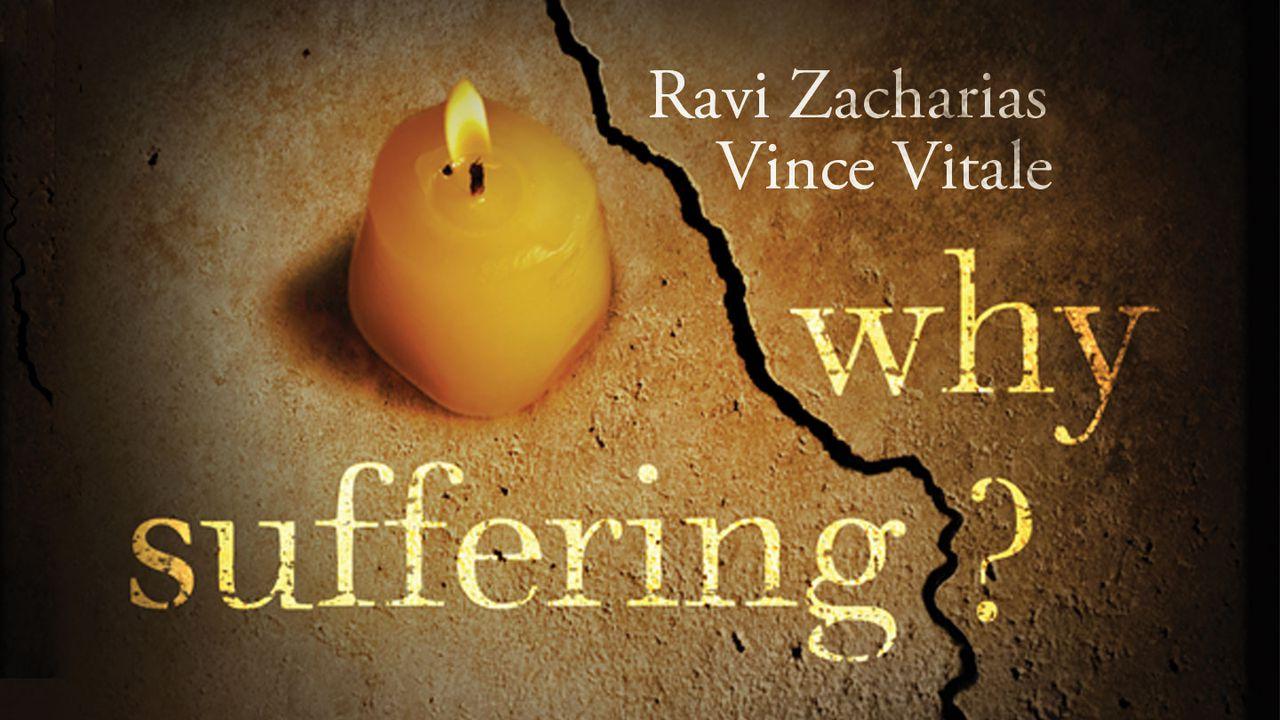Why SufferingSample

Where Definitions Begin
Voltaire once mused on the predatory chain of life, how the miseries of each are supposed to make up the good of all. In his classic work In Memoriam, Tennyson framed it in these words: “Nature, red in tooth and claw . . .”[1] It’s hard to escape the tragedy of such a reality and not ask the question of why it must be so.
But one has to start off with a more foundational question: Is there a moral framework to life? Are the moral judgments we make reflective of a reality that is not just a preference of values but is in some nature binding upon us? To the naturalist, the presence of evil is troubling with a double edge. From where do they even get the category of evil? And, second, how do they break its stranglehold?
To the Christian theist, good and evil have a point of reference. With the naturalistic starting point, good and evil are either emotionally sensed or pragmatically driven, both of which fall victim to the reasoning processes of our diverse cultures. This is a glaring inconsistency within naturalism.
If naturalism were true, why should we expect the human species to be any different than mere beasts that lack the capacity for true moral reasoning? Why should it bother us when someone says, “I really don’t care about anyone or anything else; I want to live my lifestyle.” Oscar Wilde once said that we don’t appreciate sunsets because we don’t have to pay for them. G. K. Chesterton remarked that Wilde was wrong: “We can pay for them by not being Oscar Wilde.”[2]
Do you see how deep the questions really lie? Everyone knows that dropping bombs kills people, but that hasn’t kept us from going to war. We must still answer the question of why it’s wrong to murder. In this mix of life and death and destruction the problem of pain stares at us daily. What is the explanation if naturalism is all there is? Is there a story that is true and comprehensive in dealing with the facts? Are we merely educated meat computers, different to the animal world only in degree, in which case there is no reason for us to act any differently to the animals, and evil as a category cannot exist? Or are we essentially different, equipped with a sense of moral responsibility that is inescapable and subject to a different set of rules?
Before anything is lived it has to be believed, and not everything that is believed is always lived out. The disavowal of belief in God is fraught with immense logical and existential problems. If indeed the existence of God (from which the essential nature of man derives) is denied, three dire logical conclusions must necessarily follow:
- Humanity becomes God.
- The body becomes the soul.
- Time becomes eternity.
Christianity suggests that coherent and livable responses are to be found not in humanity becoming God, but in the God who became human.
Reflection Questions
· Can we live with the three ramifications identified above? And what becomes of the problem of evil if these implications are true?
· Read Romans 1:18–32 and 2:12–15. Why is it ultimately impossible to escape (but not to suppress) our moral responsibility before God?
Bible Verses
- Psalm 8
- Psalm 139
Citations
[1] Susan Shatto and Marion Shaw, eds., Tennyson: In Memoriam (Oxford: Clarendon Press, 1982), 80.
[2] G. K. Chesterton, Orthodoxy (New York: John Lane, 1908), 104.
Scripture
About this Plan

This study is based on the book WHY SUFFERING? written by Christian apologist Ravi Zacharias and Vince Vitale, Dean of the Zacharias Institute, It is written for the Christian struggling for an answer, the seeker who thinks suffering disproves God’s existence, and the sufferer who needs a glimpse of a loving God.
More
Related plans

The Radiant Mom: 10 Days to a More Joyful, Christ-Centered Home

Celebrate

Prayers for a Mother's Day: Powerful Prayers for Busy Moms

Healing the Wounds of Rejection

Reading With the People of God #14 Proverbs

The Last Half Hour: When Waiting Becomes Glory

Write Your Faith: 3 Days of Journaling

Lessons From Ezra

Pain to Peace: A Man's Path Past Pitfalls
